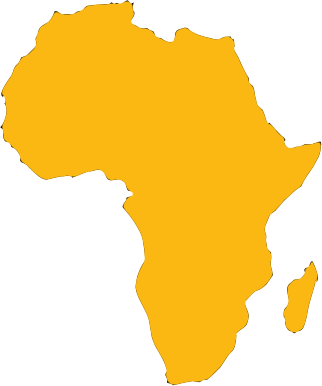ANC Factionalism: How Long Shall the Grass Suffer.
By Musa Mdunge
Ndovu wawili wakigombana ziumiazo ni nyasi! When elephants fight, it is the grass that suffers! This Swahili proverbs best describes the political climate that has engulfed South Africa since the rise of a new kind of factionalism within the African National Congress (ANC) in 2007. The rise of factionalism in history is not a new thing and is well documented, with one key moment being the ideological battles between the Chartists (Mandela and co) versus the Africanist bloc ( Sobukwe and co), which led to the formation of the Pan-Africanist Congress (PAC).
However, as the ANC entered power and access to state power created a condition for the amassing of wealth by those who were politically connected, the battle for the soul of the ANC became a battle for access to state resources. The climax of this battle to shape in the Polokwane elective conference in December 2007. The choice between Mbeki and Zuma was a titanic battle, where the lives of more than fifty million people would be decided by a delegation of not over 5000 people. Today in 2021, we have lived with both the good and bad results of that conference.
On the one hand, while Mbekites may have lauded over strong macroeconomic fundamentals and stable economic growth, the failure of Mbeki’s HIV response and foreign policy missteps in Zimbabwe, with little room for dissent within the ANC, meant Zuma’s offer of bringing more consultative culture was welcomed. Moreover, Zuma can be lauded for overhauling Mbeki’s HIV policy and this saw an improvement in South Africa’s life expectancy. In addition, Zuma presided over an expanded welfare state, helping ease the impact of poverty and unemployment.
However, a rebuttal to this social legacy is the fact that if there was strong economic growth and implementation of economic reforms, strong employment creation would have led to less need for creating a welfare state. Nonetheless, what was clear in the 10 years of Zuma grip on power, was decay in ideological debate, an embrace of the cadre careerism, the capture of the executive and the weakness of parliamentary oversight over the executive. However, to be fair to Zuma, the latter can be attributed in part to South Africa’s party system and the weakness of parliament is more of a hangover of the Mbeki years, where dissent from the party line was not tolerated.
The rise of Ramaphosa was projected as new dawn not only for the ANC but for the country at large. However, was elected to the ANC presidency with the weakest level of support since the dawn of democracy. Moreover, the structure of the rest of the top six, the National Executive Committee (NEC) and the National Working Committee (NWC), represented a stalemate between pro-Ramaphosa supporters and pro-Zuma-Magashule supporters. As both Zuma and ANC Secretary-General Ace Magashule face criminal cases, the fight for the soul of the ANC and the future of the country hangs in the balance.
How do you explain the multiple NEC meetings to debate ANC’s 2017 step aside resolution, while the country faces a pandemic crisis and the worst economic crisis since 1994?
The greatest threat to South Africa’s economic recovery and by virtue of its democratic project is the very party that has been a custodian of revolution. The factional battles where the politics of positions has trumped the politics of ideas has led Luthuli house to spend hours arguing about who should step aside, rather than the ANC formulating strong, practical policy towards the triple challenges of poverty, unemployment and inequality. Moreover, what does not help this is a weakened political opposition, where parties like the DA have decided to go back to barricades of minority representation, rather than attempt to build a broad church of support that would wrestle the ANC for the centre.
As a result, South Africans (the grass) will continue to suffer in the hands of a political elite more concerned about lining their pockets than doing what needs to do to change the trajectory of Southern Africa’s hegemonic power. As South Africa declines even its ability as a norm entrepreneur in Africa declines.
The rise of powers such as Nigeria, Angola, Kenya Ethiopia, and Rwanda, will pose a challenge to our ability to exert influence in the continent. After all foreign power is an extension of domestic power. Our regression in the latter has and will continue to show up in the former. What perhaps has been helpful is the residue of Mandela years and the legacy of Mbeki’s African renaissance project.
However, the erosion of the state institutions under Zuma, poor economic policies, factionalism within the ANC and the weakness of Ramaphosa mandate and his personality politics means South Africa will likely lose another decade and with that, another generation may be subject to the shackles of poverty.
Now more than ever, South Africans must ask themselves, how long shall they suffer the injustice of an unravelling democratic project under Luthuli House? How long shall the grass suffer? You decide!
Musa Mdunge is a political analyst based at the University of Dundee, Scotland.
Article Tags
 Africa
Africa Education
Education Joburg
Joburg South Africa
South Africa Greatest Africans
Greatest Africans Africa
Africa Education
Education Joburg
Joburg South Africa
South Africa Greatest Africans
Greatest Africans